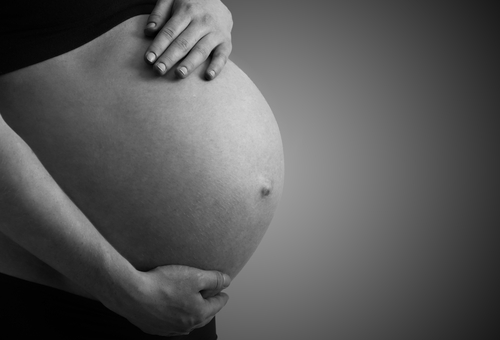Healthy Baby Girl Born After Rare Abdominal Pregnancy

A pregnant woman with a stomach ache turned out to have a serious pregnancy complication that was missed during her previous ultrasound exams: The woman's 32-week-old fetus was growing within her abdomen, outside her uterus, according to a new report of her case.
When doctors examined the woman further and discovered the abdominal pregnancy, they quickly operated on the woman's abdomen and found her live fetus floating in her abdominal cavity, without its nourishing amniotic sac. The healthy baby girl was delivered and sent home with her 22-year-old mother in good condition, researchers in Tanzania said.
Abdominal pregnancies are rare, and when they do happen, they can go unnoticed even if ultrasounds are used, because the pregnancy can appear normal in an ultrasound examination, the researchers wrote in the report, published Feb. 25 in the journal BioMed Central. An abdominal pregnancy that goes unnoticed can threaten the mother's life and cause massive bleeding.
Related: 14 Oddest Medical Case Reports
"I've seen maybe four or five abdominal pregnancies over the course of 25 years," said Dr. Jill Rabin, chief of ambulatory care, obstetrics and gynecology at Long Island Jewish Medical Center in New Hyde Park, N.Y., who wasn't involved with the case.
"Many times, these pregnancies are not diagnosed until the labor," Rabin said. "The woman is going through labor, the cervix is dilated and you are wondering, 'Why is the patient having contractions and nothing is happening?'"
Abdominal pregnancy is a rare form of ectopic pregnancy, occurring in about 1 out of every 10,000 pregnancies, according to some estimates. In an abdominal pregnancy, an embryo usually first implants in one of the fallopian tubes (instead of the uterus), and then moves backward within the body, toward the ovaries. From there, it implants for the second time — this time, in the abdomen.
Get the world’s most fascinating discoveries delivered straight to your inbox.
Diagnosing an abdominal pregnancy is difficult, Rabin said. "It's very rare, but you have to keep it in your mind when examining a pregnant woman who has abdominal pain."
Other symptoms include painful fetal movements, and gastrointestinal problems. Also, if it's too easy to feel the baby, or see it with an ultrasound, that might be a sign that the baby is outside the uterus, Rabin said.
If doctors find that a fetus is growing outside the uterus, they make an incision in the pregnant woman's abdomen, to deliver the baby. The placenta is often left to be absorbed by the body, because removing the placenta can cause severe bleeding. "The patient has to be followed very, very closely to be sure that the placenta is reabsorbed; it takes a couple of months," Rabin said.
Most of the babies that Rabin has seen in abdominal pregnancies were healthy, she told Live Science.
"The placenta is attached to something vascular, so the baby is getting fed from the mother's blood supply, just not in the way that we would like, so many of these babies are very small," Rabin said.
If an abdominal pregnancy is detected in the first trimester, doctors usually remove the embryo. However, most cases are not diagnosed until later on in the pregnancy. "If it's diagnosed in the second trimester, you watch the mother very carefully, but every case is different," Rabin said.
Email Bahar Gholipour. Follow us @LiveScience, Facebook & Google+. Original article on Live Science.

 Live Science Plus
Live Science Plus





